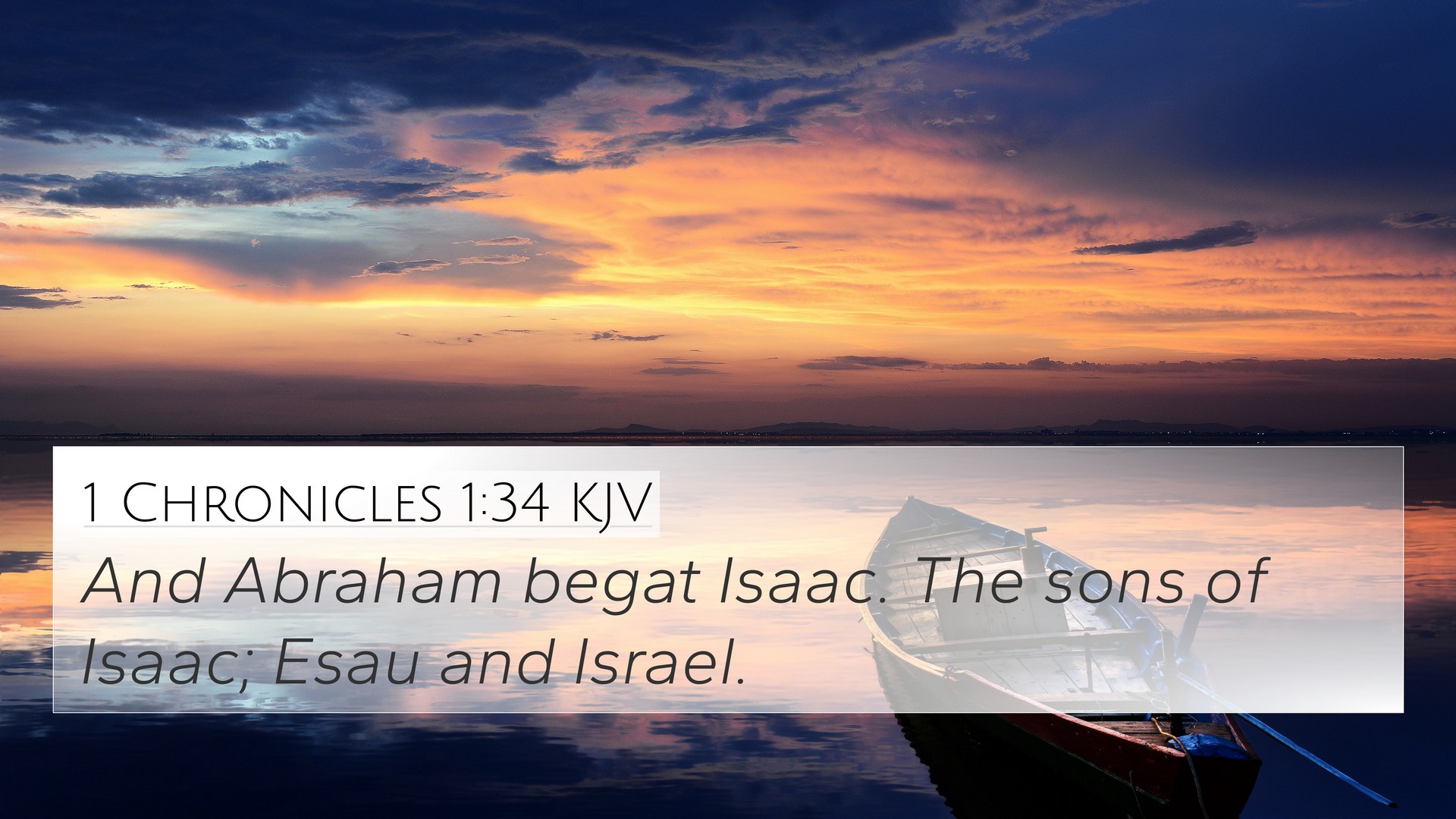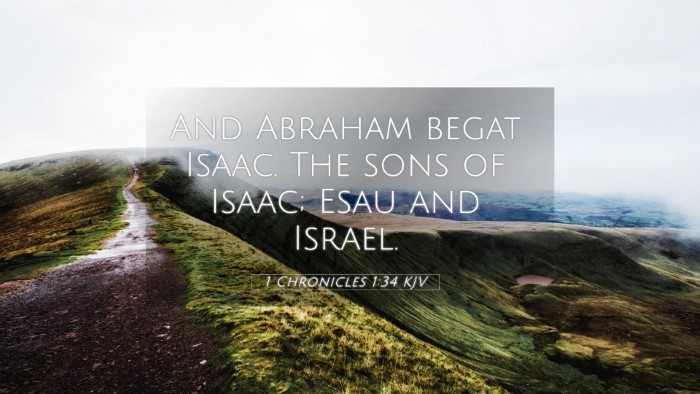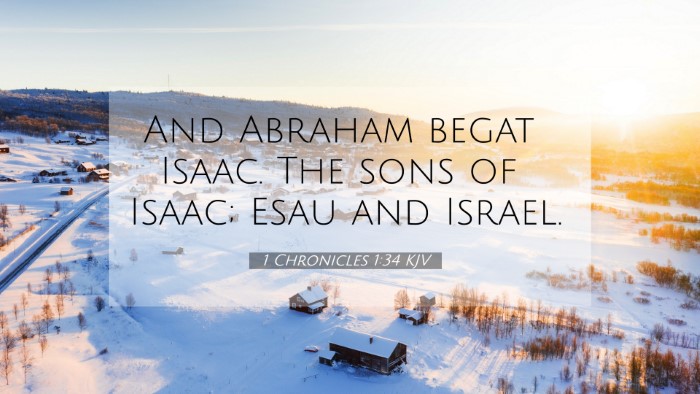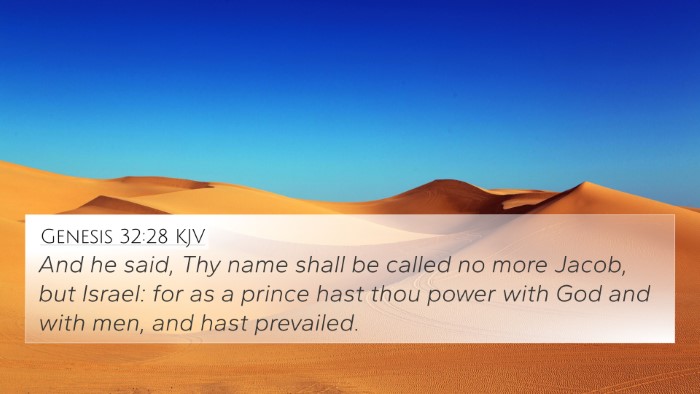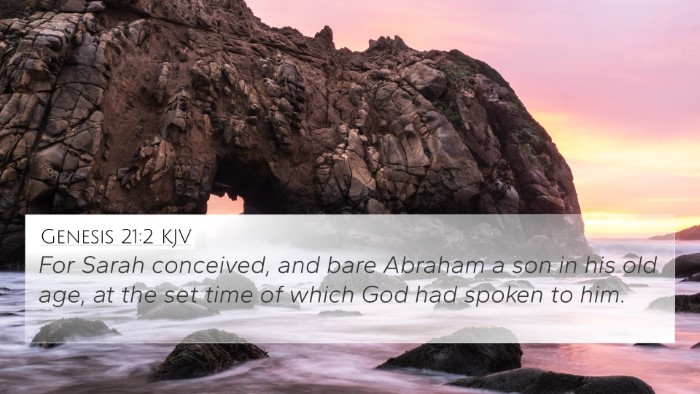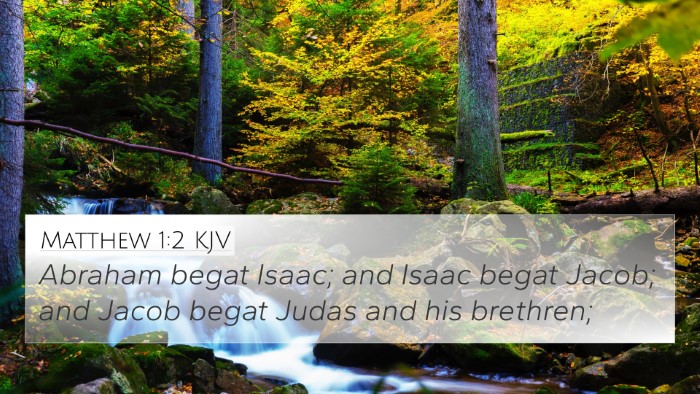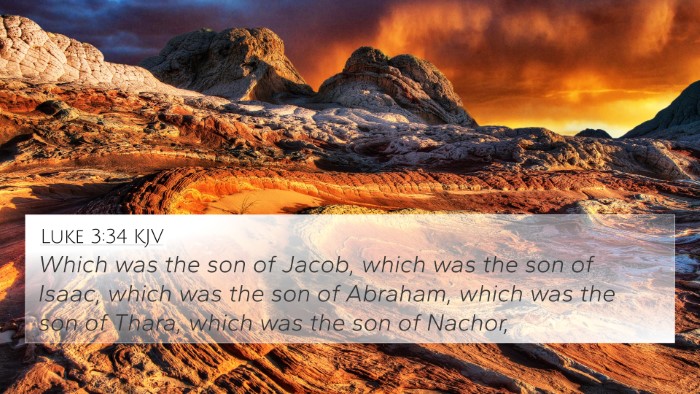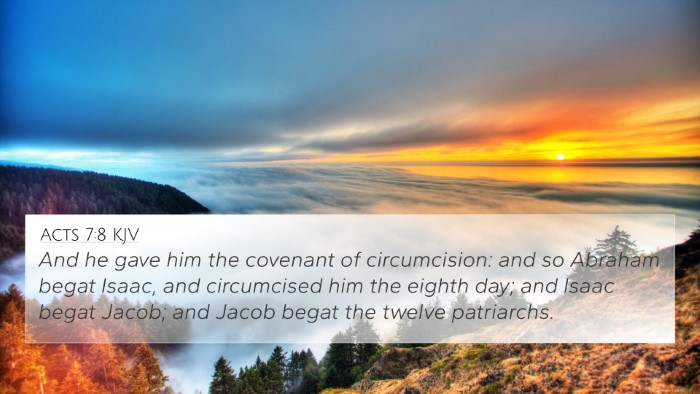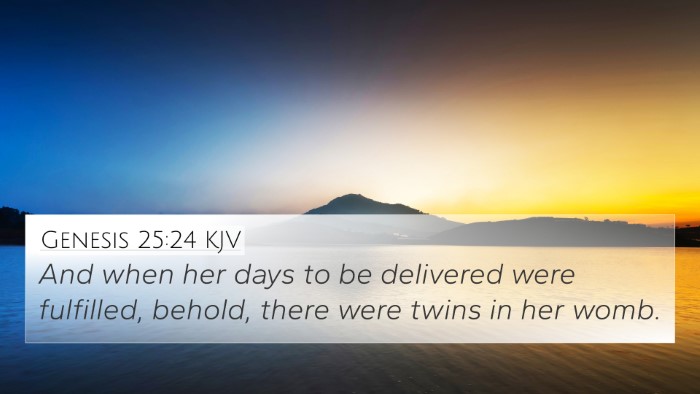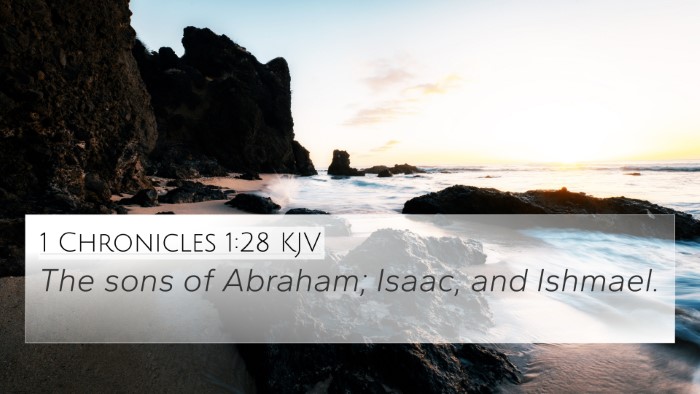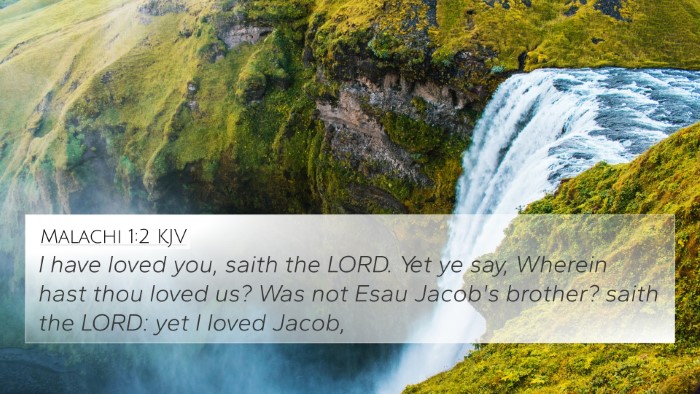Understanding 1 Chronicles 1:34
Bible Verse: 1 Chronicles 1:34 - "Abraham was the father of Isaac. The sons of Isaac were Esau and Israel."
Summary of Meaning
The passage in 1 Chronicles 1:34 presents a crucial genealogical point within the biblical narrative, focusing on Abraham, Isaac, and their descendants. The genealogy emphasizes the covenantal lineage that plays a significant role in the unfolding story of God's people.
Key Insights from Public Domain Commentaries
- Matthew Henry: Henry observes that the genealogy illustrates the significant lineage from Abraham to Isaac, and the mention of Isaac's sons, Esau and Israel, foreshadows the future divisions within Israel. This underscores the themes of blessing and election, as well as the contrast between the two sons.
- Albert Barnes: Barnes emphasizes that the mention of Abraham as the father of Isaac highlights the important covenant relationship that God established. The duality of Esau and Jacob (Israel) reflects the dynamics of God's election and serves as a pivotal element in Israel's history.
- Adam Clarke: Clarke points out that the genealogy serves to affirm the promise made to Abraham. Additionally, he discusses the socio-political ramifications of these familial relationships, noting how Esau's descendants became the Edomites, which is significant in the broader context of biblical history.
Bible Verse Cross-References
This verse has numerous connections with other scriptures, enriching our understanding through cross-referencing:
- Genesis 12:1-3 - The call of Abraham and the promise of a great nation.
- Isaiah 41:8 - God's covenant with Abraham and his descendants.
- Romans 9:10-13 - The election of Jacob over Esau, highlighting God's sovereign choice.
- Hebrews 11:17-19 - The faith of Abraham, depicting his role as the father of the faithful.
- Malachi 1:2-3 - God's love for Jacob and hatred for Esau, elaborating on their destinies.
- Genesis 25:19-26 - The birth of Esau and Jacob, providing greater context to their relationships.
- Exodus 3:6 - The acknowledgment of Abraham, Isaac, and Jacob as the patriarchs of Israel.
- Matthew 1:2-16 - The genealogy of Jesus Christ that traces back to Abraham, illuminating the continuity of God's plan.
- Luke 3:34 - Another genealogical reference connecting back to Abraham.
- Genesis 21:12 - God’s decision regarding Isaac and Ishmael, further emphasizing the covenant promise.
Thematic Bible Verse Connections
1 Chronicles 1:34 serves as a pivotal point in understanding the broader themes within Scripture:
- Covenant and Election: The genealogy emphasizes God's covenant with Abraham, highlighting the theme of divine selection throughout the Old Testament.
- Family and Heritage: The relationships between Abraham, Isaac, and their sons represent God’s redemptive work through family lines.
- Conflict and Division: The mention of Esau and Jacob sets the stage for future biblical narratives concerning conflict, rivalry, and divine justice.
Tools for Bible Cross-Referencing
Understanding connections between biblical texts can be enriched through various tools:
- Bible Concordance: A valuable resource for locating specific verses and their thematic connections.
- Bible Cross-Reference Guide: A systematic way to explore related scriptures and their implications.
- Cross-Reference Bible Study: Methods that allow for a deeper investigation into how scriptures interrelate.
- Bible Reference Resources: Comprehensive materials that assist in exploring biblical themes and narratives.
Conclusion
1 Chronicles 1:34 encapsulates essential truths about the covenantal promises of God, the significance of family lineages, and the intricate relationships within Scripture. Engaging in a comparative Bible verse analysis helps to unveil the deeper meanings and connections throughout the biblical narrative, facilitating a more profound understanding of God’s redemptive plan.
